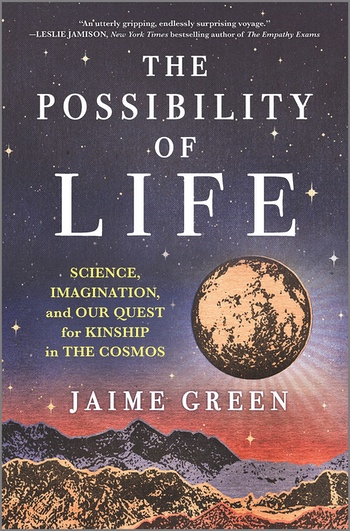Review: The Possibility of Lifeby Jeff Foust
|
| An astronomer says, only half jokingly, “we know less about exoplanets now than we did before we started discovering them,” as discoveries upend models of solar system formation. |
The book is a collection of interconnected essays on various topics associated with the search for life beyond Earth, from biology to astronomy to technology. Green thoughtfully explores those topics, talking with many scientists involved in those various fields. That’s combined with perspectives from science fiction, with a mix of obvious choices (The Star Trek franchise, Contact, and Arrival) and lesser-known ones, like the novel The Sparrow about meeting intelligent species on a planet in the Alpha Centauri system.
One theme that emerges from this book is that scientists are just beginning to understand the scope of the challenge of finding life beyond Earth. One biologist studying the origins of life says that our knowledge of life as a phenomenon is “right now where we were with gravity before Newton:” we can see it, but don’t know the underlying principles. Another astronomer says, only half jokingly, “we know less about exoplanets now than we did before we started discovering them,” as discoveries upend models of solar system formation.
Such awareness is, arguably, a sign of a maturing field, coming to grips with what it doesn’t know in order to fill those gaps. Confidence abounds in some parts of the field: speaking on a panel two weeks ago at the 38th Space Symposium in Colorado Springs, Pete Worden, former head of NASA’s Ames Research Center and current executive director of Breakthrough Initiatives, predicted by 2050 we would have evidence that life was commonplace in the galaxy and even may have detected the first signals of extraterrestrial civilizations (one of the efforts that foundation supports is a SETI project, Breakthough Listen.)
Yet, it’s also possible that by 2050 scientists are still debating whether ancient materials in Martian samples, or a faint spectral signature of an “Earth-like” exoplanet, constitutes evidence of life. By the end of the book, Green, like one of the scientists she interviewed, has come to believe that finding life elsewhere is not the goal so much as appreciating the life we know exists here on Earth. “It wasn’t life elsewhere that held the magic, anymore,” she concluded. “We were just as improbable, and as important, as whatever we hoped might exist on worlds beyond.”
Note: we are using a new commenting system, which may require you to create a new account.
